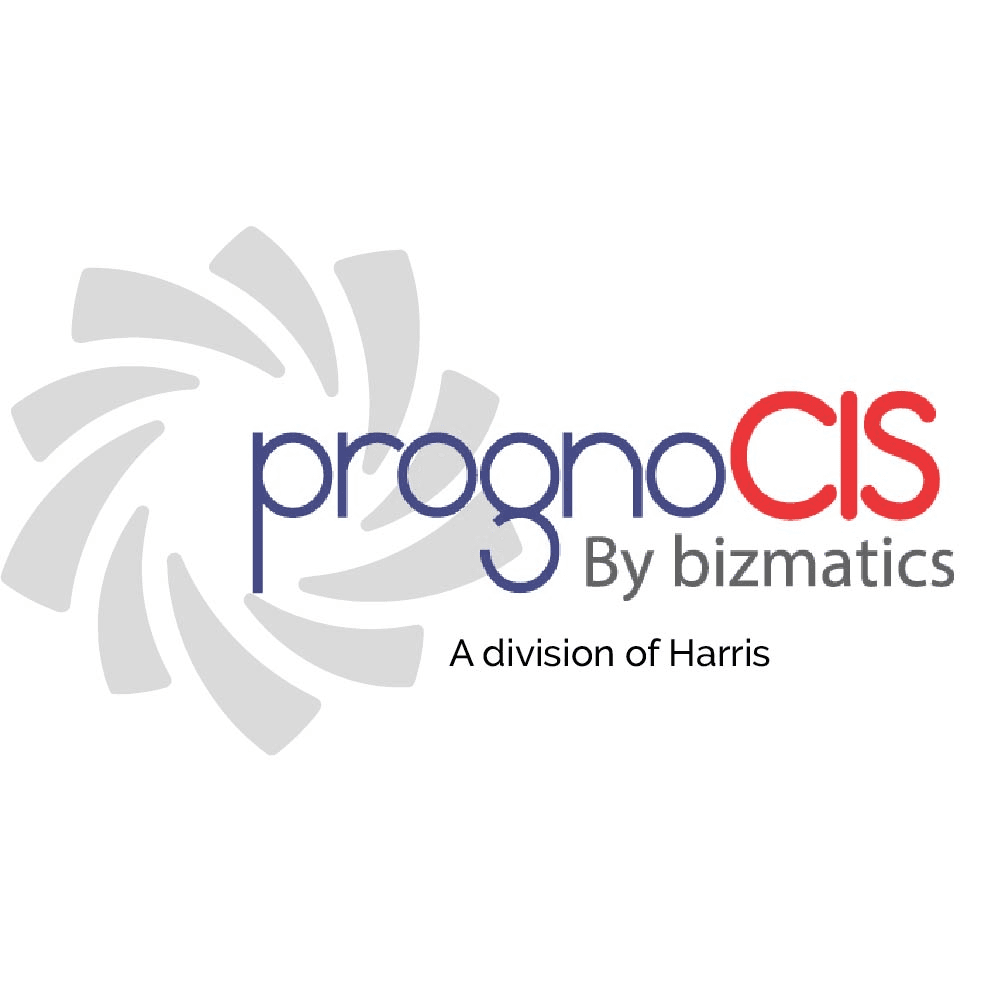
Top 15 MicroMD Alternatives
Compare Features
Feature List |  MicroMD | AdvancedMD | athenaOne | Cerner EMR | DrChrono EHR |
|---|---|---|---|---|---|
Appointment Management/Scheduling | |||||
e-Prescriptions | |||||
Lab Integration | |||||
Patient Portal | |||||
Mobile App | |||||
Telemedicine | |||||
Billing and Invoicing | |||||
Claims Management | |||||
Customizable Forms | |||||
Patient Demographics |
Make decisions with real reviews from real users
Top 10 Micromd Alternatives
Finding an appropriate MicroMD alternative may feel overwhelming for practices, given the abundance of feature-rich solutions available in the medical software sector. While each tool has its own set of strengths, there are also certain weaknesses that might lead to an alternative search.
Micromd has been a popular option for many medical care providers as it offers a comprehensive feature stack that includes appointment management, e-prescriptions, and others. However, given the diverse requirements of practices, certain drawbacks such as limited reports generation, integration issues, lack of advanced customization lead users to consider alternatives.
In this guide, we have explored the electronic medical record (EHR) software industry and compiled a list of the top 10 MicroMD alternatives, providing an overview of their features, pros and cons, and pricing.
Let’s get started for further exploration!
Our Best Micromd Alternatives
Software | Unique Advantage | Notable Features |
athenaOne |
|
|
AdvancedMD EHR |
|
|
eClinicalWorks |
|
|
Kareo EMR |
|
|
CharmHealth EHR |
|
|
Qualifacts CareLogic |
|
|
Allscripts EMR |
|
|
PrognoCIS |
|
|
CareCloud EHR |
|
|
TriMed Complete |
|
|
1.athenaOne
athenaOne is a well-known EHR management system that possesses robust qualities which enables the healthcare centers to drive their operations efficiently. Moreover, it helps the practices to combine multiple functions such as revenue management and clinical workflows in a single platform. It is currently offering its services to practices of all sizes looking forward to streamlining their workflows.
As compared to Mircromd that focuses on offering a complete EHR experience, athenaOne makes to our Micromd alternatives list due to its advanced telehealth integration.
Some of its key features are:
- Self-service patient portal
- Revenue cycle management
- Telehealth capabilities
- Performance management
What Are The Pros And Cons Of athenaOne?
Pros | Cons |
|
|
How Much Does athenaOne Cost?
It provides customized pricing quotes based on specific business needs.
2. AdvancedMD EHR
AdvancedMD EHR is one of the leading EHR services providers in the medical software sector. It helps the practitioners to simply their administrative and patient centric procedures along with comprehensive customization options in the work templates. It is mainly considered ideal for medium to large sized healthcare facilities, with room for scalability.
It is a viable Micromd alternative because of its advanced customization in the workflows for effective operational management, a functionality in which Micromd lacks.
Key features of AdvancedMD EHR include:
- Appointment management
- Voice-enabled note taking
- Analytics and reporting
- Flexible templates
What Are The Pros And Cons Of AdvancedMD EHR?
Pros | Cons |
|
|
How Much Does AdvancedMD EHR Cost?
It provides tailored pricing plans to suit different business needs.
3. eClinicalWorks
eClinicalWorks is a recognized practice management tool that offers administrative as well as EHR abilities. It utilizes cloud-enabled infrastructure to aid the practices to focus more on patient care by streamlining their operational tasks. It is widely recognized for delivering features tailored to healthcare centers of all sizes seeking an integrated EHR solution.
eClinicalWorks stands out as a leading MicroMD alternative due to its advanced population health metrics and seamless integrations for health data exchange with other organizations.
Here are its best features:
- Population health management
- Telehealth tools
- E-prescription management
- Patient engagement
What Are The Pros And Cons Of eClinicalWorks?
Pros | Cons |
|
|
How Much Does eClinicalWorks Cost?
It provides three pricing types:
- EHR Only: $449/month/provider
- EHR with Practice Management: $599/month/provider
- RCM as a Service: 2.9% of practice collections
Disclaimer: The pricing is subject to change.
4. Kareo EMR
Kareo EMR is a cloud-based medical management software designed to simplify healthcare operations. It offers a variety of features, including medical form management, patient communication, invoicing, and more. The platform is tailored for individual practitioners, small clinics, and private health centers seeking an easy-to-use and efficient EHR system.
While Micromd offers a wide range of EHR features, Kareo EMR offers a simple system that require little training to full utilization, making itself as a reliable Mircromd alternative.
The key feature of Kareo EMR include:
- Patient charting
- Bill processing
- Appointment scheduling
- Patient communication
What Are The Pros And Cons Of Kareo EMR?
Pros | Cons |
|
|
How Much Does Kareo EMR Cost?
The software provides users with the following plans:
- Practice Automation: $899/month (physician) and $499/month (non-physician)
- Practice Essentials: $699/month (physician) and $399/month (non-physician)
- Billing: $399/month (physician) and $225/month (non-physician)
- Clinical: $399/month (physician) and $225/month (non-physician)
- Patient Experience: $249/month (physician) and $99/month (non-physician)
Disclaimer: The pricing is subject to change.
5. CharmHealth EHR
CharmHealth EHR is a cloud-based EHR platform designed to enable the practices to manage care coordination efficiently. Also, it offers advanced telehealth options and other functionalities at accessible pricing. It majorly targets smaller practices that include solo clinics, single specialty centers, and others. It is included in our MicroMD alternatives list for its telehealth tools, patient engagement portal, and budget-friendly pricing.
Some of its notable features are:
- Analytical insights
- Data security
- Reminder alerts
- Telehealth integrations
What Are The Pros And Cons Of CharmHealth EHR?
Pros | Cons |
|
|
How Much Does CharmHealth EHR Cost?
It offers personalized pricing quotes tailored to individual business needs.
6. Qualifacts CareLogic
Qualifacts CareLogic is a specialty focused EHR platform that caters to behavioral healthcare practices. It provides robust functionalities for treatment tracking, compliance management, reporting, and others. It targets human services organizations along with behavioral healthcare clinics of all sizes.
We have placed it on our Micromd alternatives list due to its compliance management, and efficient reporting services which are not the core competency of Micromd.
The essential features of Qualifacts CareLogic are:
- Outcome tracking
- Compliance with behavioral health rules
- Patient scheduling
- Reporting tools
What Are The Pros And Cons Of Qualifacts CareLogic?
Pros | Cons |
|
|
How Much Does Qualifacts CareLogic Cost?
It provides feature-based pricing options.
7. Allscripts EMR
Allscripts EMR (now acquired by Veradigm) is an extensive EHR system that aids medical care centers to administer their complex clinical processes. It provides features that are scalable and fosters interoperability between different operations of several departments. It is most suitable for large scale healthcare providers such as multi-specialty clinics, public medical centers, and others.
As compared to Micromd, it excels in advanced data visualization capabilities along with a powerful application programming interface (API), placing it in the Micromd alternatives list.
Here are some if its best features:
- Medicine management
- Data visualization tools
- Flexible integration options
- Patient engagement
What Are The Pros And Cons Of Allscripts EMR?
Pros | Cons |
|
|
How Much Does Allscripts EMR Cost?
Veradigm (Allscripts) e-prescribe offers the following pricing plan:
- Standard Plan: $59/month/subscriber
Additional plans are available; for detailed information, please visit Veradigm's official website.
Disclaimer: The pricing is subject to change.
8. PrognoCIS
PrognoCIS is a cloud-based EHR platform known for its flexibility and comprehensive wide range of features. It’s especially well-suited for medium sized specialty clinics in fields like dermatology, gynecology, cardiology, and more, offering tailored solutions to meet their unique needs. It is part of the Micromd alternatives list because of its personalized templates and automated billing abilities.
The key features include:
- Specialty-centric templates
- Billing automation
- Customizable patient portal
- Telemedicine integrations
What Are The Pros And Cons Of PrognoCIS?
Pros | Cons |
|
|
How Much Does PrognoCIS Cost?
It offers specialty-specific pricing.
9. CareCloud EHR
CareCloud EHR is an intuitive practice management solution that connects multiple departments of a facility into one single platform. It offers an end-to-end capability allowing the users to manage documents, oversee patient care, manage finances, and others. It is highly recommended for small to medium-sized practices that are undergoing a period of growth.
The improved revenue cycle management, strong analytical capabilities, and easy-to-use interface makes it one of the ideal Micromd alternatives.
Some of the notable features are as follows:
- Flexible templates
- Analytics and reporting
- HIPPA compliance
- Patient engagement tools
What Are The Pros And Cons Of CareCloud EHR?
Pros | Cons |
|
|
How Much Does CareCloud EHR Cost?
It offers flexible pricing plans tailored to different practice needs.
10. TriMed Complete
TriMed Complete is a comprehensive EHR software that provides a wide range of functionalities for effective governance of healthcare practices. It possesses patient communication tools, flexible workflows, and patient engagement tool integrations for improving the overall patient care and experience. It is mainly known for its services across the entire medical care providers.
As compared to Micromd, TriMed Complete offers several external app integrations reducing the need for acquiring other EHR platforms and making itself one of the top Micromd alternatives.
The best features include:
- Integration options
- Invoice generation
- Patient communication
- Appointment management
What Are The Pros And Cons Of TriMed Complete?
Pros | Cons |
|
|
How Much Does TriMed Complete Cost?
It provides module-based pricing.
How We Analyzed Our Micromd Alternatives?
We followed a careful and thorough process to identify the most reliable and relevant Micromd alternative solutions. Here’s what we considered for this article:
- User Reviews: Feedback from real-time users and healthcare professionals gave us insight into user satisfaction, overall reliability, and relevant use cases
- Key Features: We assessed each option’s usability, scalability, customization, and other essential functionalities to ensure it meets the practical needs of healthcare providers
- Audience Fit: Our list includes solutions tailored for a variety of users, from small practices and specialty clinics to large healthcare organizations
- Innovation: We prioritized platforms with modern features like telehealth and advanced analytics to address the evolving demands of today’s healthcare industry
This approach allowed us to curate a list of EHR solutions designed to help providers work smarter and deliver better patient care.
Selecting The Best Micromd Alternative
Choosing the right Micromd alternative is a critical decision that can significantly impact your practice’s efficiency and patient care. Start by identifying your practice’s unique needs and pinpointing the limitations you’ve faced. For instance, if your primary concern is scalability, consider solutions designed for large enterprises. On the other hand, if affordability and simplicity are key, consider accordingly.
Exploring alternatives to Micromd is not just about finding a replacement but about discovering a solution that enhances your practice’s overall performance. Whether it’s advanced telehealth capabilities, better scalability, or superior customization, the options listed here offer something for everyone.
Ready to make the switch? Schedule a free demo today and empower your practice with the right tools for success!






